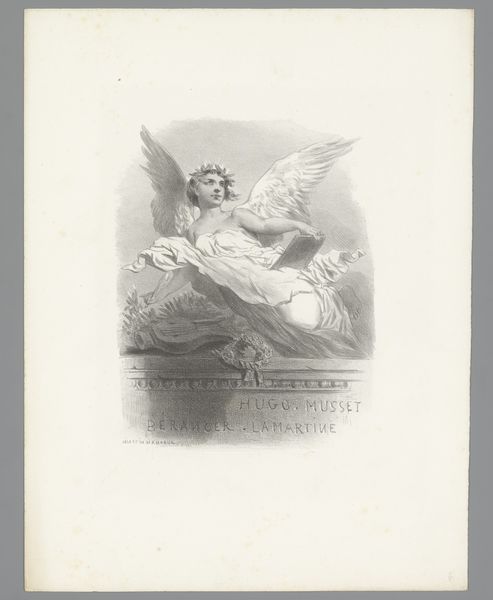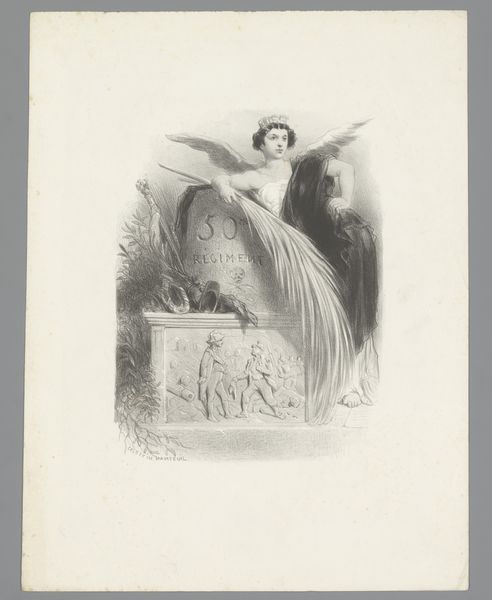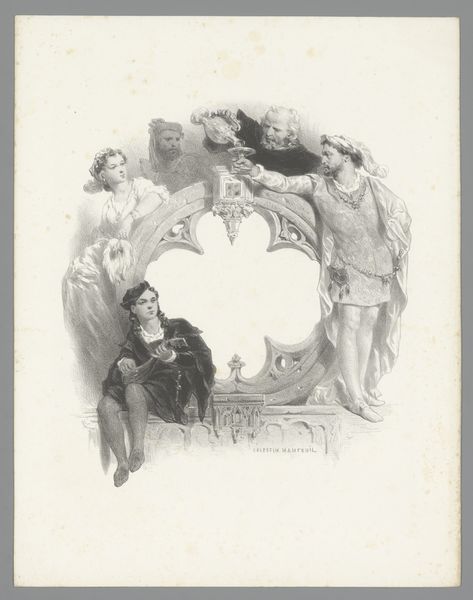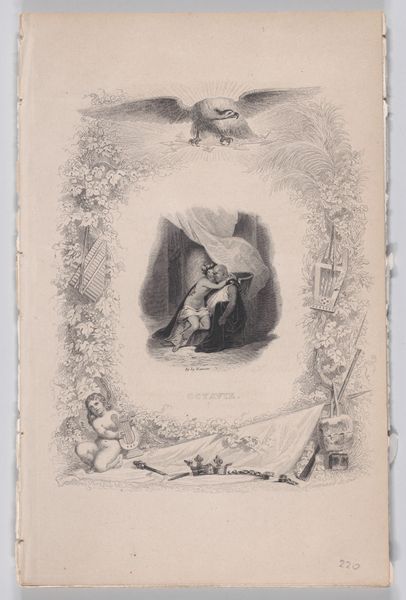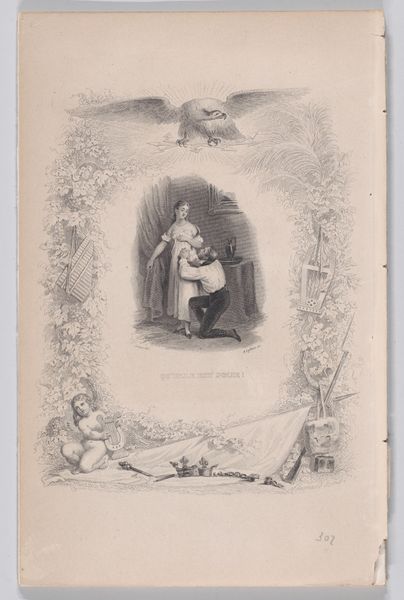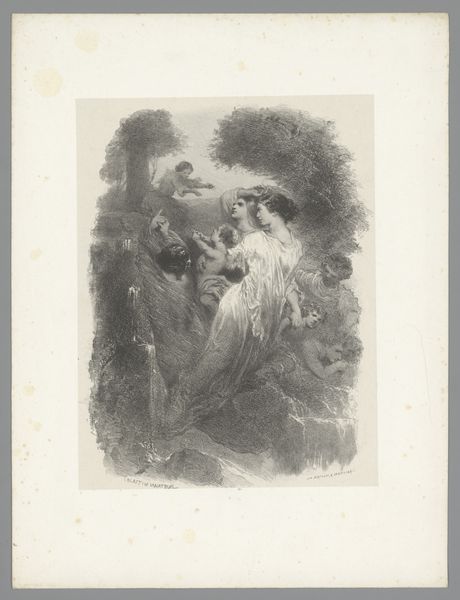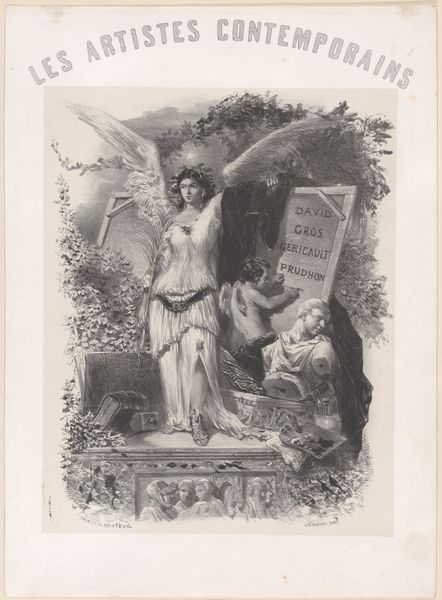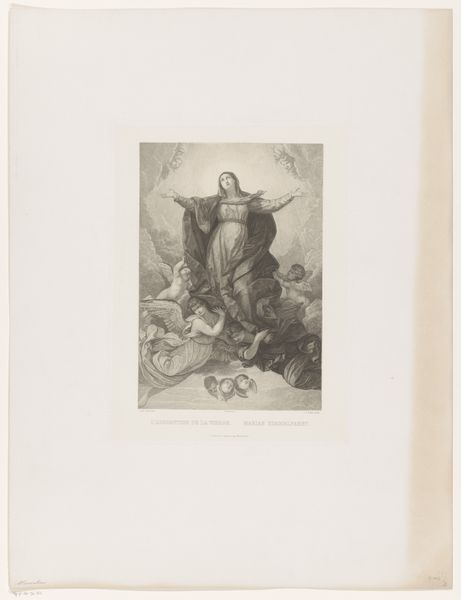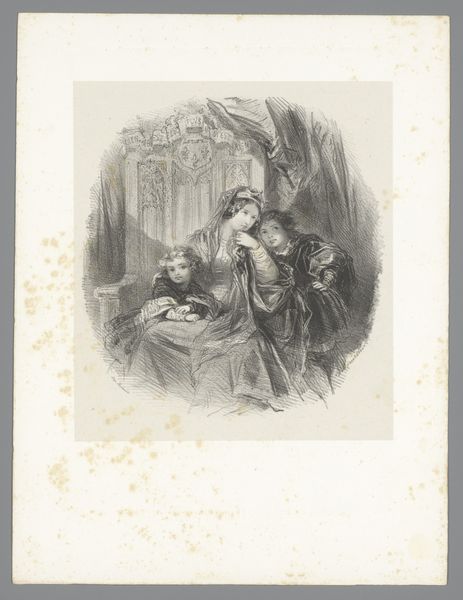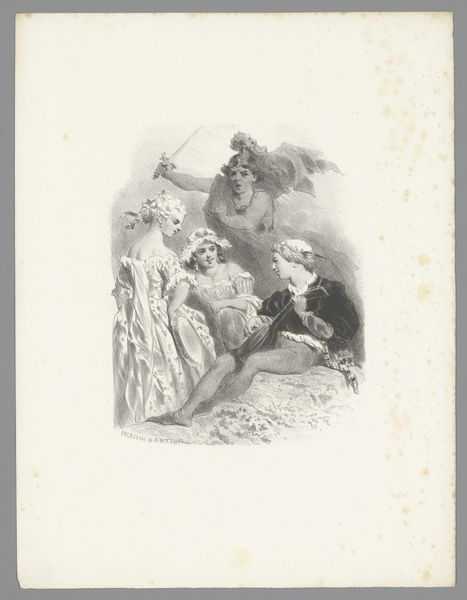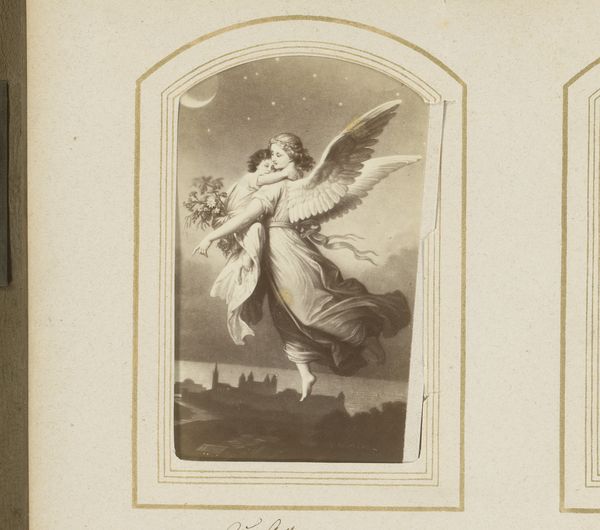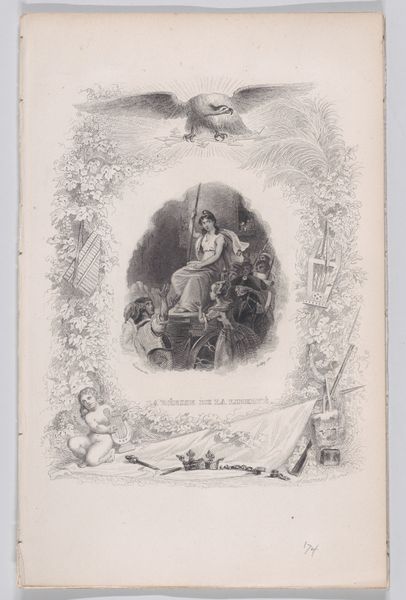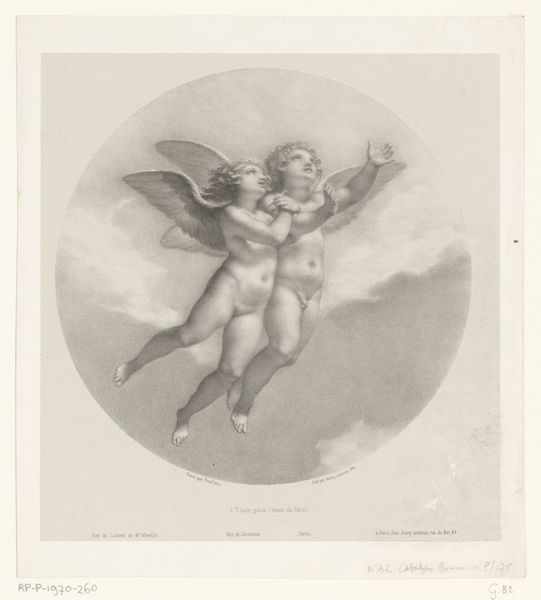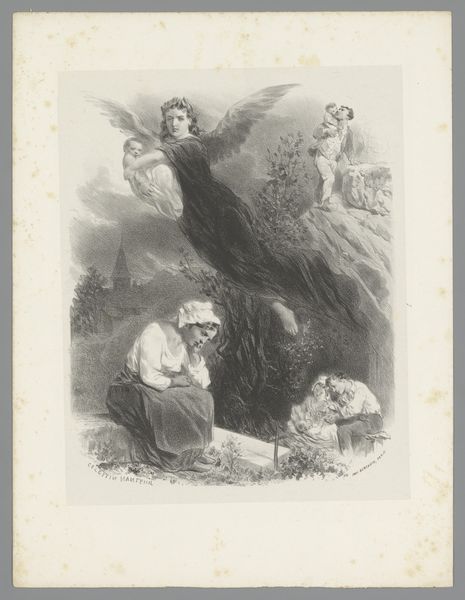
drawing, pencil
#
pencil drawn
#
drawing
#
allegory
#
pencil sketch
#
figuration
#
pencil drawing
#
romanticism
#
pencil
Dimensions: height 357 mm, width 276 mm
Copyright: Rijks Museum: Open Domain
Célestin Nanteuil made this lithograph of an angel with broken chains and a devil. Lithography is a printmaking process that relies on the contrast between greasy and water-receptive areas on a stone or metal plate. The artist draws on the surface with a greasy crayon, then treats it with chemicals so that ink adheres only to the drawn areas. The image is then transferred to paper using a press. The medium is critical to the message here. Lithography made images like this reproducible at scale, severing the chains of exclusivity that had tied image-making to unique works of art. The broken chains held by the angel echo this shift, suggesting the liberation of ideas. The artist has created an image of freedom using a process that enables it. Note the way that the devil cowers in the face of this advance. Nanteuil’s choice of lithography, a relatively new technology at the time, speaks to a desire to engage with contemporary issues of labor, politics, and consumption. It challenges our understanding of the role that both craft and fine art have in shaping culture and disseminating information.
Comments
No comments
Be the first to comment and join the conversation on the ultimate creative platform.
